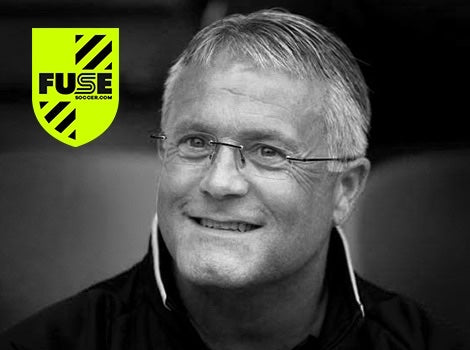Michael “Micky” Adams is an English professional football manager and ex-professional full-back with over 400 caps to his name in the English Football League, including 5 years with Southampton in the top flight.
Micky began his managerial career with Fulham as a player-manager, and has since managed a number of sides including bringing Leicester City into the top division, Brighton Hove and Albion, Coventry City and Sheffield United.

FUSE spoke with Micky about his experiences in professional soccer as both a player and manager, the present and future state of soccer in the US as well as the changes necessary to adapt to the modern game.
Enjoy the interview below.
Can you touch on some of the differences between the modern game and when you were playing professionally?
“Biggest changes have been in recovery. A lot of emphasis is spent on recovery, nutrition, warm-down, massage and getting ready for the next game. Can't go out and drive a few pints now like we used to. Rest and Recovery is massive.”
How would you rate the quality of players in the league now in comparison?
There’s a better standard of player technically now honestly. Lots of players who would’ve been premier league level are filtering into the Championship. Technically, people are getting better but the bottom leagues still have much room for improvement.
As a former full back, can you speak on the development of the position and modern demands for attacking full-backs?
“Full-backs are the modern wingers now. Much higher up the pitch then they used to be, and lots of teams play that 4-3-3 where the full-backs get much higher and assume more space to operate in. The full-backs are definitely not better defensively, but they are fitter and quicker than in the past. They make more defensive 1v1 mistakes.”
You’ve had such a successful playing and managerial career - who are your biggest influences that have helped shape your management/ playing style?
“My old teacher at school Roger Blades taught sports, he made a big impact on me. Billy Bremner for his enthusiasm, Howard Wilkinson for his organization, and Dave Bassett was another massive influence on me.”
In your opinion, what are the most critical fundamental skills to be teaching at the youth level?
“Ball mastering and technique control.”
What were the challenges of being a player-manager? Is that role dead within the modern game?
“Incredibly difficult being a player-manager. Sometimes you as a player suffered because you weren't spending enough time thinking on your own game. Really though, you must have a good number 2 in charge to make decisions while you are focused on the pitch.
The game has evolved, there are more directors that take some authority away from managers. I don’t feel we will see many more player-managers in the Premier League.”
If you had the chance to go back and tell your 18-year-old self one piece of advice - what would it be?
“I would tell my 18 year-old self - "Go and enjoy yourself. After a game isn't the right time to prepare for the next game. Also, when you are injured having a cortisone injection probably isn't the best thing for you as I hobble around. The sport science has changed and we didn't have that luxury.”
What are your thoughts on the state of American soccer and the development of the sport in the USA?
“I can't help but think America has got it wrong. They've built top-down instead of bottom-up. The extortionate amount of money parents are asked to give for coaching is rough and has hindered a lot of kids from playing can't afford to play. The cream will always rise to the top. If you're good enough, there is a place in Europe. Pulisic has true ability and he has began to show glimpses of the exciting talent he is. His task now will be to hold down a regular place in the team and remain consistent with his performances.
FUSE is a fantastic opportunity to be coached by quality coaches and to learn the culture of the game.”



Leave a comment: